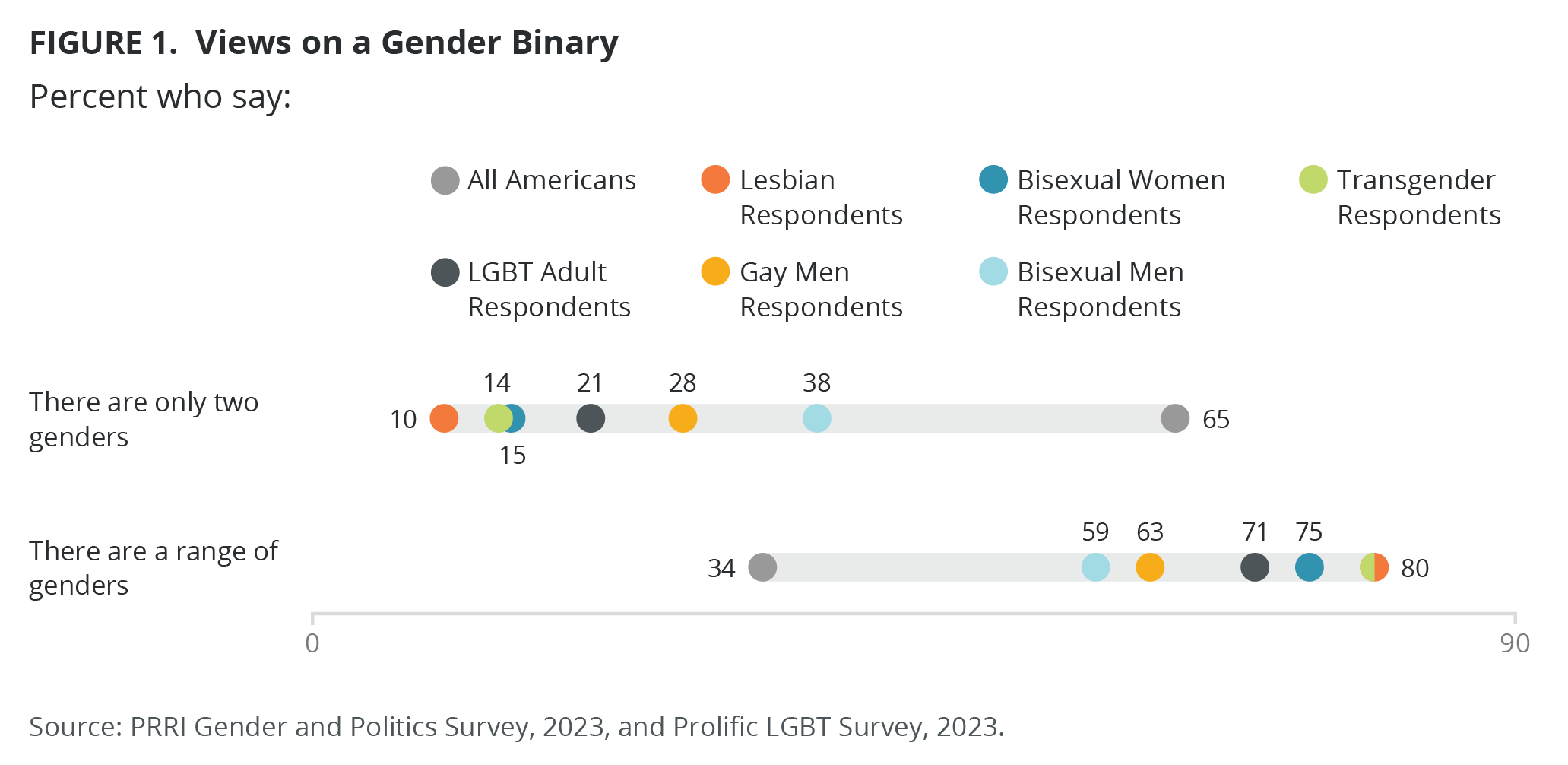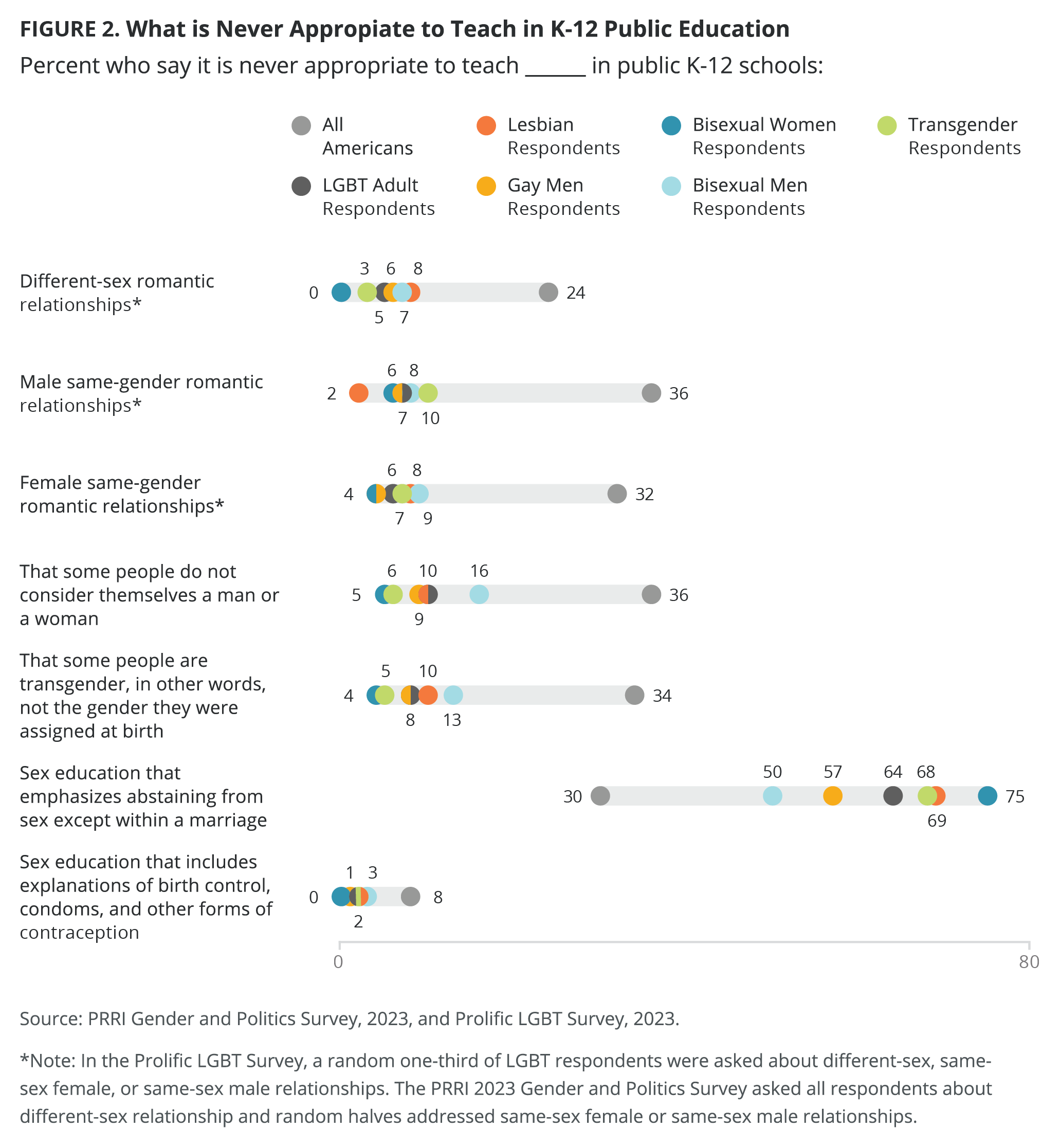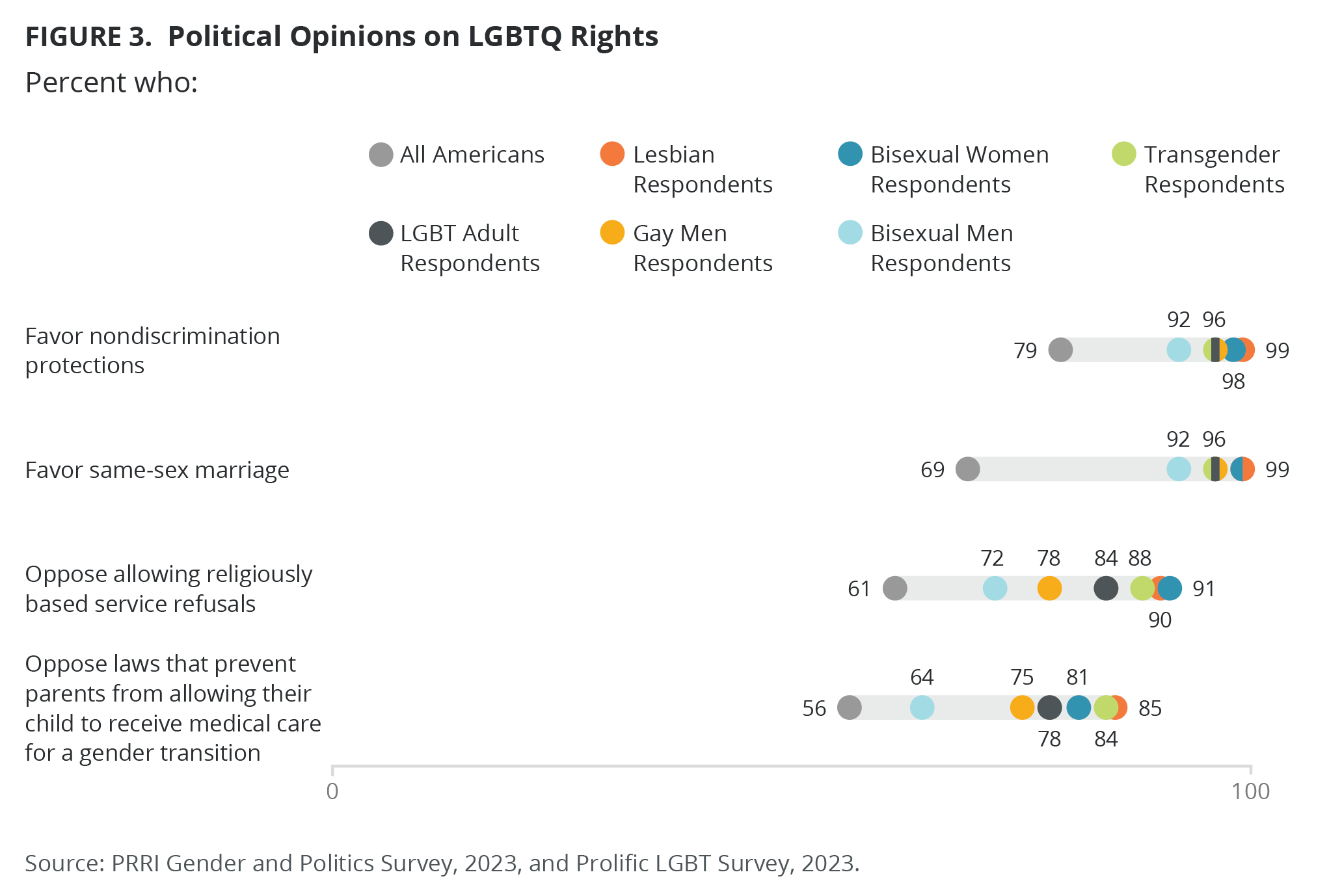Concerning Gender, Sexuality, and Politics
PRRI’s 2023 Gender and Politics Survey provides an important update on the current state of the opinions of American adults on pressing questions about gender and sexuality. While there were some notable differences revealed among LGBT adults included in the study, there were too few LGBT people surveyed to provide a deep snapshot.
Accordingly, in early June, we set out to take a closer look by using the Prolific survey platform to survey 1,255 LGBT adults in the United States. While not representative of all LGBT people, these data provide a unique opportunity to explore and compare the attitudes of LGBT adults. Further, we set quotas to make sure we surveyed approximately 250 individuals from the following groups: gay men, lesbians, bisexual men, bisexual women, and transgender and gender non-conforming people.[1] We present the data from this survey alongside data gathered in PRRI’s 2023 Gender and Politics Survey to provide a more complete picture of the opinions of American adults on questions about gender and sexuality.
LGBT Respondents Recognize a Broader Range of Gender Expressions than the General Public
First, we considered people’s beliefs about how many genders exist. PRRI’s 2023 Gender and Politics survey found that nearly two-thirds of Americans (65%) say there are only two genders, man or woman, compared to 34% who say there are a range of genders. By contrast, our survey shows that LGBT adult respondents have markedly different views about gender — with 21% saying there are only two genders. Gay men (28%) and bisexual men (38%) were somewhat more likely to say they believe in a gender binary than were bisexual women (15%), transgender people (14%), and lesbian respondents (10%).

LGBT respondents are more comfortable with teaching about sexual and gender diversity in schools and want more comprehensive sex education than the general public
When it comes to what is appropriate to teach in K-12 instruction, LGBT respondents hold starkly different viewpoints than Americans in general. Our survey shows that only 6-7% of LGBT respondents say that teaching about same-sex relationships should never occur in schools compared to 34% of all Americans. Similarly, compared to about one-third of all Americans, only a small minority of LGBT respondents (8-10%) say it is always inappropriate to teach about gender nonbinary and transgender people in K-12 education. Further, two-thirds of LGBT respondents (64%) strongly disapprove of sex education focusing on abstinence until marriage instruction compared to 30% of all Americans. Both LGBT respondents and all Americans generally say comprehensive sex education should appear at some point in K-12 learning.
Notably, a higher percentage of gay and bisexual men say that some topics about sex, sexuality, and gender should not appear in K-12 education than do other LGBT subgroups. Lower percentages of transgender respondents say that teaching about nonbinary and transgender people is never appropriate than do some other subgroups.

LGBT Respondents Support More Pro-LGBTQ policies and Oppose More Anti-LGBTQ Policies than the General Public
Majorities of LGBT respondents as well as the general public agree on several policy positions affecting LGBTQ people. There is broad support for nondiscrimination protections and marriage equality; majorities oppose denials of services to LGBTQ people based on religious beliefs and restrictions on parents providing their transgender children with medically necessary care. However, LGBT respondents are more solidly in favor of pro-LGBTQ policies and against anti-LGBTQ policies. Gay and bisexual men respondents stand out with slightly larger shares in favor of allowing denials of services based on religious reasons and restricting parents from medically caring for their transgender children. Even so, those are minority viewpoints among those subgroups.

Our survey results confirm what others have found: LGBT people have a distinct voice in their politics, particularly around gender and sexuality. At the same time, there are some subgroup differences among LGBT people, with some notable gender gaps among men, women, and transgender people. While these differences are present, it is remarkable that majorities of the American public and LGBT adults agree on certain policies about gender and sexuality. Political disagreements will no doubt continue. In the current political climate, marked by rising anti-LGBT rhetoric, having points of agreement among the American public and LGBT adults remain important.
[1] Our Prolific LGBT survey interviewed a total of 1,255 LGBT adults from May 22 – June 29, 2023. The survey sampled 250 gay men, 250 lesbians, 250 bisexual men, 250 bisexual women, and 224 transgender and gender-diverse people, based on how the individuals were identified by Prolific and information available in their Prolific demographic profiles. Results presented here are organized by the overall sample and by these subgroups, even though some LGB people may also be transgender, and some transgender people may be LGB.
Andrew R. Flores, Ph.D., Kelsy Burke, Ph.D., Suzanna Krivulskaya, Ph.D., and Tyler Lefevor, Ph.D. were members of the 2022-2023 cohort of PRRI Public Fellows.







